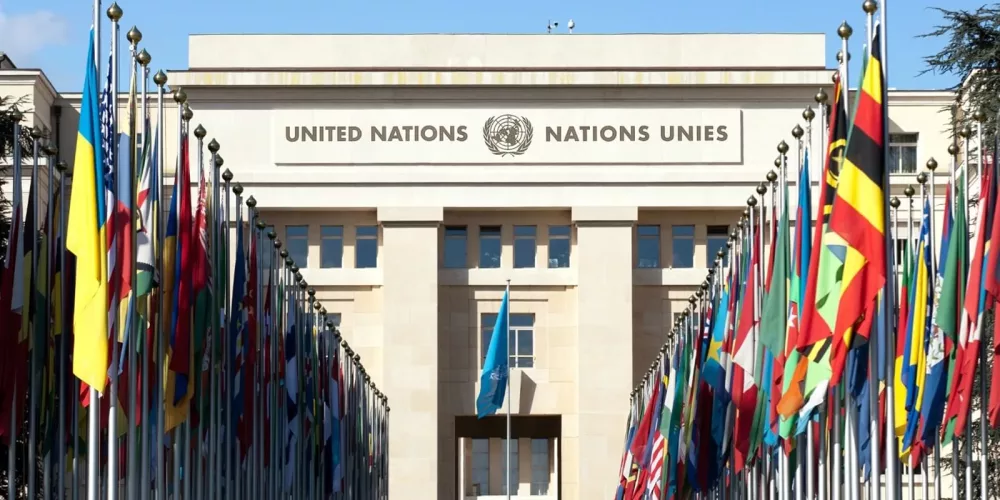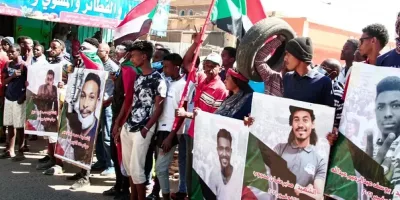The Committee for Justice (CFJ) has proposed amendments to a draft resolution set to be adopted by the Human Rights Council, which aims to address the phenomenon of transnational repression targeting human rights defenders, journalists, and political dissidents.
These amendments come at a time when the world is witnessing an increase in the use of digital technologies by governments and non-state actors as tools to silence dissidents and conduct cross-border online intimidation. The committee stressed that this digital repression includes hacking activists’ private communications and using advanced spyware such as “Pegasus” and “FinFisher,” exposing them to arbitrary detention and fabricated legal proceedings.
– Transnational Repression:
First, CFJ added a new paragraph highlighting transnational repression, which targets human rights defenders through surveillance technologies and cyberattacks. The revised text in the preamble includes:
Original Text: “Expressing deep concern about illegal and arbitrary surveillance, whether in public spaces or online, targeting human rights defenders, including women human rights defenders, through the use of technologies such as closed-circuit television (CCTV), aerial surveillance vehicles, and emerging digital tracking tools such as facial and emotion recognition technologies, and International Mobile Subscriber Identity (IMSI) catchers (Stingray devices).”
Revised Text: “Expressing deep concern about illegal and arbitrary surveillance, whether in physical spaces or online, targeting human rights defenders, including women human rights defenders, through the use of technologies such as closed-circuit television (CCTV), aerial surveillance vehicles, and digital tracking tools such as facial and emotion recognition technologies, and International Mobile Subscriber Identity (IMSI) catchers (Stingray devices).
Further expressing grave concern about the escalation of transnational repression, in which states and non-state actors systematically exploit digital technologies to target human rights defenders, journalists, and political dissidents beyond their national borders, including through the use of spyware, digital surveillance, politically motivated prosecutions, arbitrary detentions, coercion, and online harassment.”
– Emphasis on Digital Threats:
The committee also added another paragraph to highlight transnational repression as part of the use of digital technologies in political repression. The revised text now reads:
Original Text: “Recognizing that new and emerging digital technologies have immense potential to strengthen democratic institutions and resilience, enable civic participation, support the work of human rights defenders, facilitate public engagement, ensure the free and open exchange of ideas, and uphold the right to freedom of opinion and expression, and the right to peaceful assembly and association.”
Revised Text: “Recognizing that new and emerging digital technologies have immense potential to strengthen democratic institutions and resilience, enable civic participation, support the work of human rights defenders, facilitate public engagement, ensure the free and open exchange of ideas, and uphold the right to freedom of opinion and expression, and the right to peaceful assembly and association.
Further recognizing that transnational repression has become an integral aspect of digital technology, whereby states and non-state actors employ modern digital tools — including surveillance software, hacking, online harassment, and disinformation campaigns — to track, intimidate, and silence human rights defenders across borders. These tactics not only threaten their personal security but also severely limit their ability to continue their advocacy, whether in exile or in digital spaces.”
– Amendments Urging States to Protect Defenders:
The committee called on states to take measures to protect human rights defenders from transnational repression and to support them in facing legal action outside their home countries. The revised text for this appeal is as follows:
Original Text: “Urges states to take measures to protect human rights defenders from illegal surveillance and prevent the use of digital technology to target them.”
Revised Text: “Urges states to take measures to protect human rights defenders from illegal surveillance and prevent the use of digital technology to target them. It also urges states to take measures to protect human rights defenders from transnational repression, including providing legal and political support for those at risk of retaliation outside their home countries, and ensuring that international legal cooperation mechanisms are not misused to target them.”
– Preventing the Misuse of Legal Tools Against Defenders:
In further amendments, the committee emphasized the need to prevent the misuse of international legal cooperation mechanisms against human rights defenders. The revised text includes:
Original Text: “Urges states to refrain from using laws, such as counterterrorism and defamation laws, to criminalize human rights defenders.”
Revised Text: “Urges states to refrain from using laws, such as counterterrorism and defamation laws, to criminalize human rights defenders. It also urges states to ensure that international legal cooperation mechanisms, such as INTERPOL and extradition treaties, are not exploited to target human rights defenders and political dissidents abroad.”
– Enhancing Protection for Exiled Activists:
A paragraph was added to clarify how to protect political refugees and activists facing transnational repression. The revised text is as follows:
Original Text: “Urges states to provide a safe environment for human rights defenders, both online and offline.”
Revised Text: “Urges states to provide a safe environment for human rights defenders, both online and offline. It also urges states to enhance mechanisms to protect political refugees and human rights defenders at risk of transnational repression, including providing safe havens, fair asylum procedures, and ensuring protection from forced deportation and legal harassment.”
– Amendments to Human Rights Council Requests:
The committee requested that the Human Rights Council assign the Office of the United Nations High Commissioner for Human Rights (OHCHR) to prepare a comprehensive report on transnational repression targeting human rights defenders, along with the digital threats they face. The revised text on this matter reads:
Original Text: “Requests the Human Rights Council to assign the Office of the United Nations High Commissioner for Human Rights to prepare a report on the digital threats faced by human rights defenders.”
Revised Text: “Requests the Human Rights Council to assign the Office of the United Nations High Commissioner for Human Rights to prepare a report on the digital threats faced by human rights defenders. It also requests the Office to prepare a dedicated report on transnational repression, analyzing its methods, its impact on human rights defenders, and providing recommendations to combat it at the international level.”
CFJ aims through these proposed amendments to enhance the legal protection of human rights defenders from transnational repression and expand the scope of legal measures that states must adopt to combat cyberattacks and digital surveillance targeting activists worldwide. The committee also stressed the need to provide a safe environment for human rights defenders abroad and to strengthen international cooperation to counter digital repression faced by defenders in exile.






